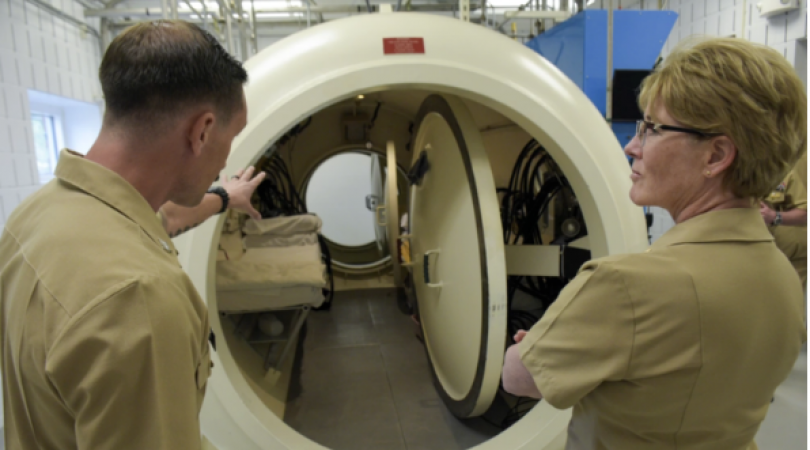
USA: According to People for the Ethical Treatment of Animals (PETA), the US Navy has ceased commissioning decompression sickness experiments on sheep that the organisation claims caused the animals excruciating pain and injuries, including paralysis and cardiovascular collapse.
On Wednesday, an animal rights organisation declared victory, saying that legal action and lobbying caused the tests to be stopped up to two years earlier than expected. With funding from the Navy totaling $389,000, the experiments were carried out at the University of Wisconsin–Madison. The group praised the stop, calling it a victory that would stop further abuse of sheep in excruciatingly painful tests.
A Navy spokesperson, however, told Military.com that the tests had ended after the project's contract reached its "natural conclusion." According to the university, the Navy and programme scientists decided last year not to continue the contracted tests.
Also Read: FBI looks for documents in a second Biden residence
The Navy needed the experiments to study how to free sailors trapped in sunk submarines. In order to simulate the pressure experienced in a deep underwater sub as well as that when surfacing quickly, according to PETA, sheep were placed in chambers.
In a letter last June to Secretary of the Navy Carlos Del Toro, the group claimed that sheep were forced to decompress after being forced to endure nearly eight atmospheres of pressure for 30 minutes. During that time, the sheep "likely experienced... crippling joint pain, seizures, nausea, paralysis, vomiting, burning, and deep chest pain." Dr. Marion Balsam, a retired rear admiral who oversaw a naval hospital, co-signed the letter.
Also Read: China is the target of a US diplomatic action
According to PETA, a "substance of interest" was also injected into sheep. Animals that made it through the tests were killed and dissected. Shalin Gala, vice president of PETA, told Military.com that these tests "fall far short of international standards and are scientifically useless."
Also Read: EU nation opposes sending fighter jets to Ukraine
Balsam and PETA research associate Samuel Pons asserted that because of physiological variations, human cells and data from divers can be more helpful in predicting symptoms and risk factors for decompression sickness. They argued that animal experiments are ineffective in simulating what happens to humans with decompression sickness.